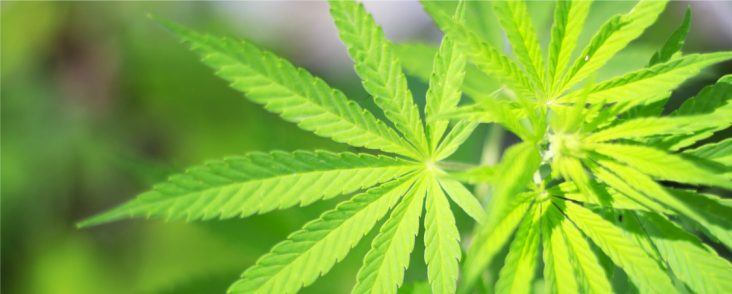Fayetteville doctor supports state’s medical cannabis industry
by November 20, 2017 5:50 pm 2,273 views

Dr. Regina Thurman is the medical director of Optimal Pain and Wellness in Fayetteville, specializing in using wide-ranging approaches to pain management. She was appointed in August to be board chairman of the newly formed Arkansas Medical Marijuana Association (AMMA), whose mission is to promote the interests of the medical marijuana industry throughout the state.
Arkansas legalized medical marijuana, or cannabis, in the November 2016 general election. Since then, state officials have been working to implement regulations and licensing requirements for medical marijuana growers and dispensers across the state.
However, there has been no date announced by the five-member Arkansas Medical Marijuana Commission for when it expects to award permits for growers and processors and dispensaries, or when the drug will be available to patients with qualifying conditions.
Talk Business & Politics-Northwest Arkansas Business Journal spoke recently with Dr. Thurman about the state’s newest industry, her advocacy of medical marijuana, and whether the drug can reduce opioid deaths.
What prompted you to be an advocate for medical cannabis?
RT: To treat pain. I know there are different ways to treat pain using alternative methods. And I like to use all of them. Medical marijuana is another thing that doctors can use to help patients be able to function. We use injections here at my clinic, and we send off for therapy as well. We want patients to be able to use multiple sources of treatment that can be used for pain control. And not just taking pain pills.
Have you always been an advocate throughout your medical career, or has there been a moment that changed your position?
RT: I never really thought about it until it started coming to light that it was definitely something that could be used for pain. And definitely something that may help get patients off of opioids. Then as you start doing research, start talking to other doctors in other states and start collecting information, you think ‘It may be worth trying.’
What is the goal of the AMMA? And what is your role as board chair?

RT: Basically to provide education, policy and help with legislation and physicians in any way that we can. My role as chairman is to help with that focus. I have really taken a big interest in physicians, especially because I want us to do what we need to do to stay ahead and make sure things are done correctly. If we can start correct on the front end, and have regulations in place for physicians, that is a big goal of mine. For the [AMMA] in general, business is going to be a big thing. Employers who have employees who are on medical marijuana. We want to get that education out there for business owners as well.
What are your thoughts on how the state is dealing with the licensing and implementation effort?
RT: It’s difficult. They have a difficult job, and it’s going to be very hard. We have eight regions they are going to put cultivation facilities in. How are they going to decide who gets licenses if everybody has the same number of points? They have a very difficult job in front of them. Same thing with dispensaries. There are a lot of great groups out there who are applying.
How often do you have conversations with patients about medical marijuana?
RT: Every day. Multiple patients bring it up every day. I have many patients who don’t want to be on opioids, but it’s the only thing they have found that can help them function with pain. Most of my patients have gone through physical therapy, they are going through injections, they’ve gone through chiropractors, gone through massages; they’ve done all these things and they still can’t function. So, they start on opioids, and they can function. Now, they see something else out there they can try that is not an opioid, and it’s natural, and it may help. I have lots of patients, ranging in age. I have [patients] in their 70s and 80s, and they are asking if I think medical marijuana will help them.
Can access to medical marijuana reduce opioid deaths?
RT: I think there was a study published in the Journal of the American Medical Association in 2014 that showed states with medical marijuana had a rate of opioid abuse and death that was decreased by about 25%. I think it can help. But it’s a wait-and-see if it actually will [in Arkansas].
What do you tell your anti-cannabis colleagues about your work in this space?
RT: I haven’t met any yet. A lot of doctors who are against it, a lot of them don’t deal in pain medicine. So it’s kind of difficult for them to view it as a good alternative. What I see on a daily basis, patients who’ve had multiple surgeries and they have a lot of issues that can cause pain. Some doctors just don’t understand that pain is real, and we need to treat it some type of way. If we have to decrease the opioids, which I think is a great thing, then we need an alternative. And if this is a good alternative, I think we should try it.
In your opinion, what is the most dangerous misinformation out there among those who advocate for medical cannabis?
RT: That it cures you. That it’s going to take your pain away, and it’s going to help you sleep and going to be the medicine you need. It’s an alternative, and it’s going to vary patient by patient.
As society grapples with marijuana, one of the biggest arguments against its legalization is that it’s a so-called gateway drug. What are your thoughts on that?
RT: I know marijuana has been out a long time. People have been using it illegally for a long time. And just from my knowledge, I haven’t seen emergency rooms full of people overdosing from marijuana. You see that with opioids, you see that with heroin, saw it with crack cocaine. But to my knowledge, I have not seen that happen with marijuana. If that was going to happen, I think it would have already happened. Because marijuana has been out for a long time. If it was a gateway drug to all these other higher powered drugs that would have already happened.
Do you think cannabis should be rescheduled or descheduled?
RT: I do. Just because what it is providing for patients. I look at the opioids and the problems we have with those, and with alcohol and with tobacco. But this is actually providing medicinal value.
